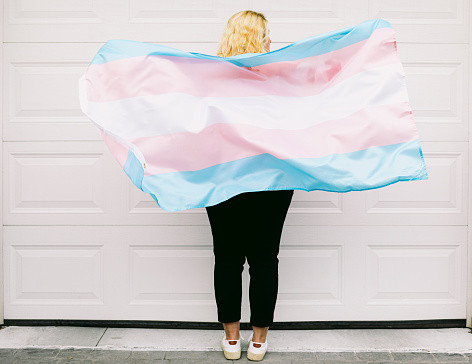
These brave transgender women endured unimaginable horrors, including being publicly humiliated, subjected to violence, and discriminated against by law enforcement.
Despite the lasting psychological scars they bear, the surviving older transgender women are now calling on the Mexican government to take responsibility and provide reparations for the immense harm they suffered.
"We're looking for reparations. For us, it was a dirty war," said Veronica Lopez from her small Mexico City apartment that she has made her own by placing dolls, figures and images of protest in every corner.
"We, the trans women, formerly known as the dress-wearers, were very discriminated against, very persecuted by the police. That war always underlay everything with us. So many crimes were committed that we ended up with nobody being able to speak up about it," she said.
Amidst decades of police violence, which reached its peak during President Jose Lopez Portillo's administration from 1976 to 1982, and under the leadership of Arturo Durazo Moreno as chief of the Police and Transit Department in the Federal District (now Mexico City), transgender women have endured continuous discrimination.
However, these resilient individuals have now come together and formed the Deuda Historica (Historic Debt) organization, advocating for justice and seeking redress for the injustices they have suffered throughout the years.
"We're never going to forget that psychological damage that they inflicted upon us. Even with the reparations, we're not going to be able to resurrect so many friends, so many colleagues who didn't have the chance to live," said Veronica, who – accompanied by Valentina Telena, of the Ius Cogens Foundation, an organization defending and promoting human rights and which has a program for trans "grandmothers," who shows the evidence of police brutality on her body: she lost her teeth, cannot hear well and can barely walk.
"Jus (or ius) cogens" is a principle of international law that bans genocide, torture, slavery and the slave trade, wars of aggression and territorial aggrandizement, refoulement and other such activities.
The women are demanding reparations that encompass compensation for the physical, emotional, psychological, and economic harm they endured due to their persecution.
The trans grandmothers assert that the Mexican government is obligated to provide them with lifelong pension payments, access to dignified housing and specialized healthcare, and a form of asylum that allows them to spend their remaining years with dignity, among other things.
Veronica, originally from Chiapas, migrated to Mexico City at the age of 12 after losing her mother at a young age. The capital and the violence she faced there transformed her into a determined activist, driven by a sense of purpose.
Despite facing numerous challenges, at the age of 14, while working at a juice stand, she heard on the radio about the screening of the 1979 film "Nora la Rebelde" (Nora, the rebel). After applying eyeliner and lipstick for the first time, she eagerly made her way to the cinema.
The film ended "and I was still seated when I saw a lively, beautiful woman coming out of the bathroom. It scared me, but I thought she was very pretty, she was a girl," Veronica said, and that was when she began to get involved in sex work, La Prensa Latina reported.
"We were the target of violence because of our (sexual) preferences. We were subjugated, we were unjustly jailed. They tied us up and hung us from trees ... or gagged us and threw us into sewage," said Alma Delia in an interview, who came to Mexico City from Guerrero state and saw sex work as a chance to earn money to help her family.
However, she soon found herself exposed to the pervasive levels of police violence in the capital, witnessing the disappearance of some of her peers.
Both women specifically mention Tlaxcoaque, the basement facilities of the Directorate of Investigations and Judicial Police (DIPD), where torture was carried out and the sense of time was lost in its dark depths.
The trans women who were confined recall being cramped together in Cell No. 5, located in Corridor 3.
The police subjected them to clean all the toilets and the entire facility, while nearby, officers would subject individuals to water-filled drums and electric shocks.
Although the DIPD facility was dismantled in 1989, the violence against transgender individuals persisted, and continues to this day, they affirm.
In 2005, Nefi, who has survived three attempted trans-femicides, was assaulted on the street by two men who violently beat her, leaving her unconscious and causing her to lose vision in one eye.
"I don't know why they did it, I don't know exactly what the reason was. ... They beat me so much that I couldn't stand up," Nefi said.
© 2025 Latin Times. All rights reserved. Do not reproduce without permission.




